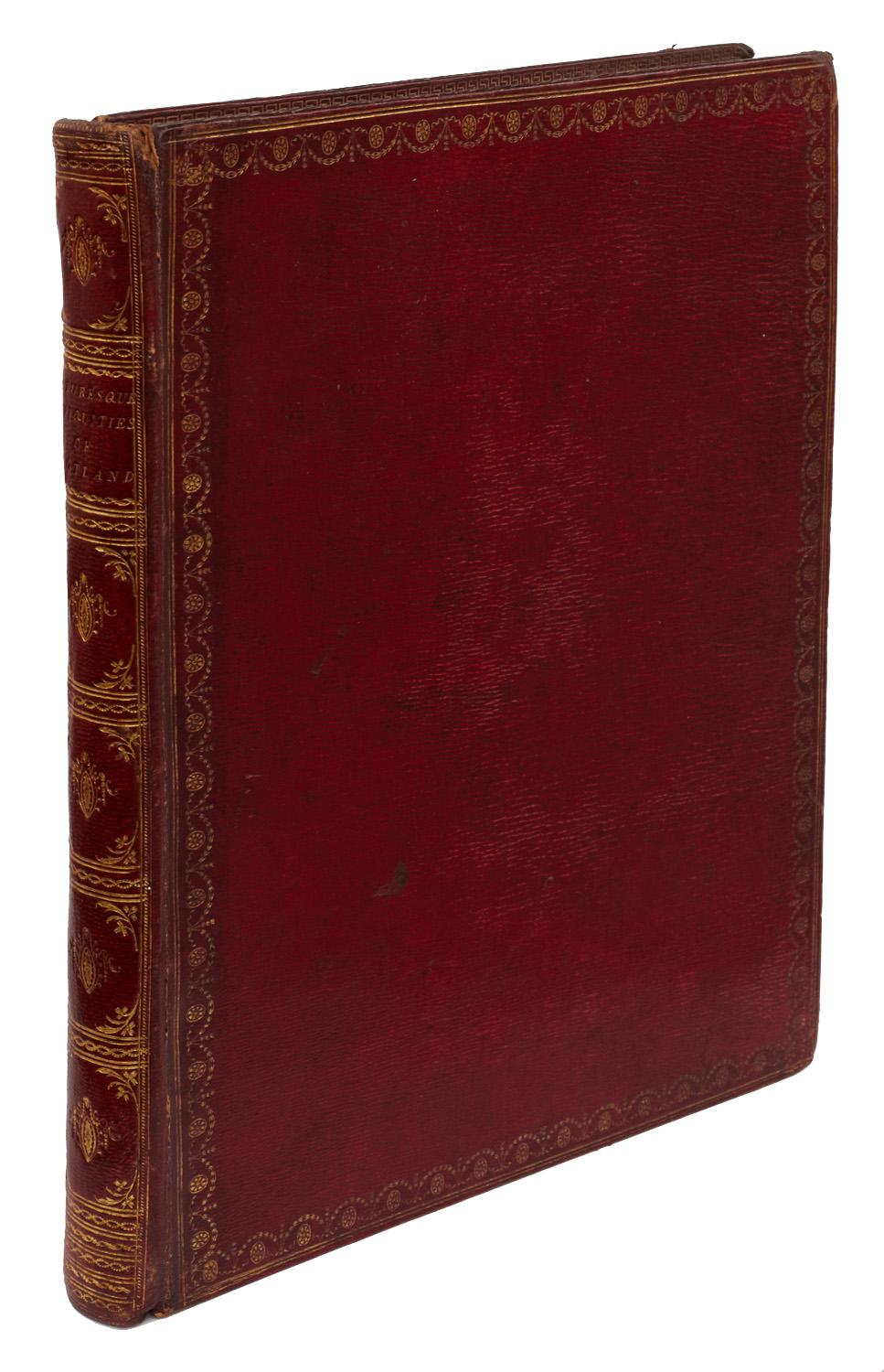AN EVANGELICAL TOURIST
HILL, Rowland.
Journal of a Tour through the North of England and Parts of Scotland. With Remarks on the present State of the established Church of Scotland, and the different Secessions therefrom .... Also some Remarks on the Propriety of what is called lay and itinerant Preaching …
London: Printed by T. Gillet … and sold at Surr[e]y Chapel; also by T. Chapman [and seven others in London, Edinburgh, and Glasgow]. 1799
8vo., pp. xii, 182, with the half-title but wanting the final leaf of ads; a very good copy in nineteenth-century straight-grain half morocco and marbled boards, neatly rebacked.
Added to your basket:
Journal of a Tour through the North of England and Parts of Scotland. With Remarks on the present State of the established Church of Scotland, and the different Secessions therefrom .... Also some Remarks on the Propriety of what is called lay and itinerant Preaching …
First edition, an account of a Scottish tour conducted in July –September 1798 by the eccentric evangelical preacher Rowland Hill, followed by lengthy remarks on the Scottish church in a letter to the Baptist minister James Haldane. There is another issue with the title Journal through the North of England, also 1799, and the following year Hill published an Extract of a Journal of a second Tour.
Hill was preacher at Surrey Chapel, Blackfriars, London, which held a congregation of 3000 – its thirteen Sunday schools could take 3000 more. ‘During the year Hill went on extended preaching tours throughout the United Kingdom, describing himself as the “… curate of all the fields, commons etc. throughout England and Wales” … He was deeply loved and highly regarded by evangelicals within the established church and by dissenters’ (Oxford DNB).
Hill’s Journal is a fascinating account of evangelism in practice. Though his first arrival in Scotland bodes ill (‘It happened to be at the time of the public fair, and a sad example it exhibited, on my first night’s lodging in Scotland’), he soon recovers, preaching at Leith (‘Plain language is the only profitable language for sinners like these’), Calton Hill, and to ‘Five thousand, I should suppose, at least’ in Glasgow. In the Highlands ‘the scenery is remarkably romantic and bold’. St. Andrews, however, is ‘mean and depopulated’ and he fears persecution by the Kirk.

